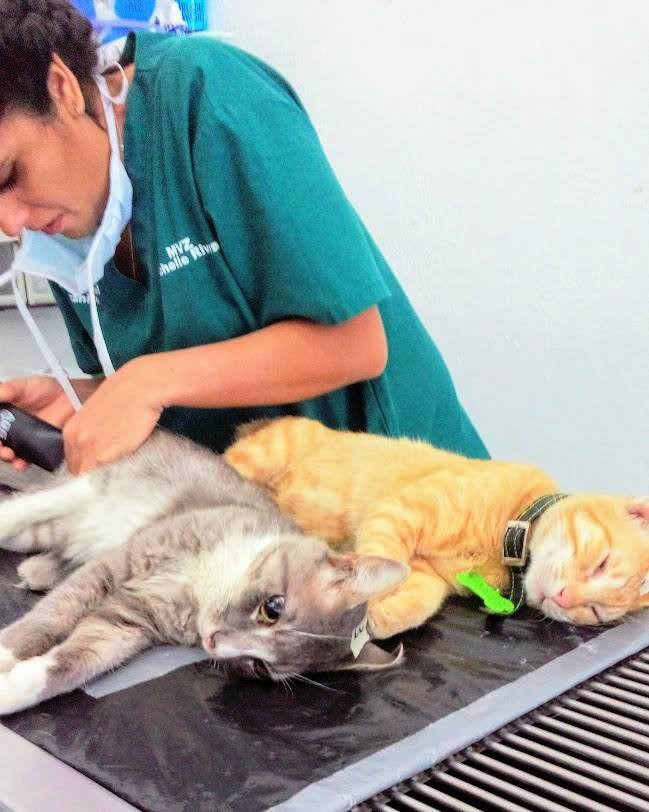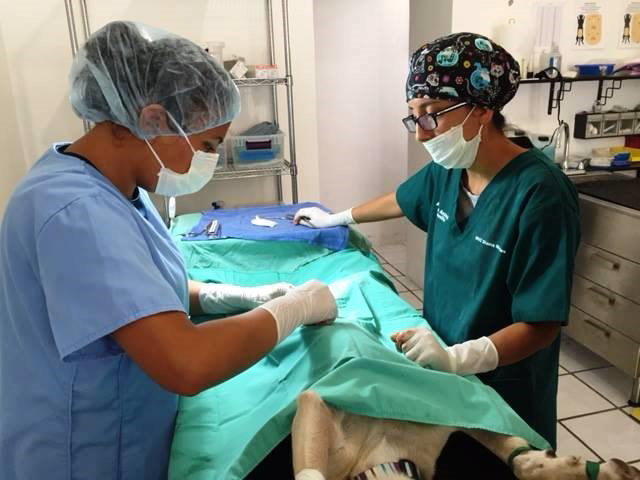By Friends of Mexican Animal Welfare on the November 2019 Edition
When it comes to spaying and neutering (fixing), misunderstandings abound. This is particularly true to the Mexican culture. Owners worry that ‘fixing’ their pet may cause undesirable side-effects. Nothing could be further from the truth! Here are a few of the most common misconceptions….
My female should have one litter first
Dogs and cats do not experience birth in an emotional sense the same way as humans. There is no scientific evidence that having a litter will affect longevity or other life attributes. While the birth experience is a great way for children to understand the cycle of life, showing them responsible pet care is a far more valuable lesson.

Breeding can replicate my pet
Professional breeders have long experience with breed bloodlines and can tell you that no two animals are ever alike. They may have similar external appearance, but every dog and cat is unique in temperament and behaviour. Enjoy your pet for its exceptional personality!
My pet isn’t old enough
Female dogs and cats can enter into their first heat cycle as early as four months, and males can begin mating at six months. Dogs can be fixed after three months of age and cats when they’ve reached a minimum of 1 kg in weight.

Fixing causes obesity and laziness.
There is no scientific evidence that spaying and neutering causes weight gain or sloth. They are primarily due to over-eating and lack of exercise. The best antidote is to ensure a proper diet and activity.

It is too expensive
The cost of spaying and neutering is a one time fee. The Alianza Animal Clinic in Manzanillo charges pet owners 450 pesos (about $24 US), a modest fee that is far outweighed by the benefits.

My male dog will get too meek
Aggressiveness in a dog is an important aspect for owners who are concerned about home security. Dogs have an innate protective instinct toward their human family and can be an effective deterrent to intruders; the key is proper training. Spaying and neutering does not affect the behaviour or personality of any dog or cat. In fact, fixing a dog will reduce its tendency to wander and fight.
I should mate my purebred
Animal shelters are overflowing with purebreds; the reality is that there are far more animals than there are families eager to adopt.
Fixing my animal will cause health problems
Just the opposite! Spaying your female reduces the chances of breast cancer and ovarian infections. Neutering your male helps prevent testicular cancer and inflammation of the prostate gland.
TVT, a form of dog cancer, is transmitted by mating. The disease is painful and often fatal. While treatment with anti-cancer drugs can cure TVT, neutering prevents transmission in the first place.

Friends of Mexican Animal Welfare (FOMAW) is a US non-profit that helps animals of Mexico through their sterilization clinic, Alianza Animal, their street animal outreach program, Animal Angels, and veterinarian continuing education programs.
Thanks to your help and support, Friends of Mexican Animal Welfare has spayed and neutered several thousand animals and unowned strays. So far, in 2019, over 1,500 animals have been sterilized. The latter is especially important; experts note that 70% of the stray population needs to be sterilized in order to avoid over population.
Please donate generously so that Friends can continue our work of ensuring a happy and healthy community!
Visit us at https://www.fomaw.org
Our thanks to blogger Linda Cole at https://www.canidae.com
The full edition or view it online
Manzanillo Sun’s eMagazine written by local authors about living in Manzanillo and Mexico, since 2009



